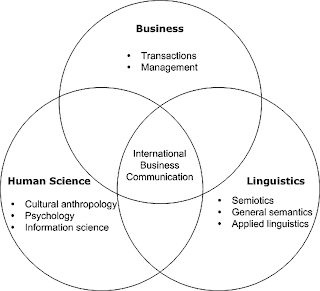What is Intercultural Communication And how it Improved
Intercultural Communication Definition
Intercultural communication is the process of sending and receiving messages between people whose cultural background could lead them to interpret verbal and non verbal signs differently. Different people have different cultural backgrounds, because they belong to different cultures and with that they also have different verbal and non verbal signs. These signs in one culture could create hassles in other culture.Improving Intercultural Communication Skills
Communication successfully between cultures requires a variety of skills. You can improve your intercultural skills throughout your carrier by studying other cultures and languages, respecting preferences for communication styles, learning to write and speak clearly, listening carefully, knowing when to use interpreter and translator and helping other to adapt to your culture.Studying other culture
Effectively adapting you communication efforts requires not only knowledge about the culture but also both the ability and the motivation to change your personal habit as needed. Much company’s appoints specialist for specific countries origin giving employees a chance to focus on one culture at a time. Some firms also provide resources to help employees prepares for interaction with other culture.Studying other languages
The languages are most important factor in the business communication. Without the ability to communication in more than one language, how could this diverse group of people ever conduct business? So the language plays a vital role in your day to day communication with your business people.Even if you colleagues or customers in another country speak your language, it’s worth the time and energy to learn common phrases in theirs. Learning the basics not only helps you get through every day business and social situation but also demonstrate your commitment to the business relationship. After all, the other person probably spent year learning your language.
Respecting preferences for communication styles
Communication styles including the level of directness, the degree of formality, preference for written versus spoken communication and other factors vary culture to culture. Knowing what your communication expects can help you adapt to their particular styles. Once again watching and learning are the best ways to improve your skills.Directness is also value in Sweden as a sign of efficiency, however but unlike with discussion in the United States, heated debates and confrontations are unusual. Italian German and French executive do not soften up colleagues with pair before they criticise. Doing seems they manipulated to them.
Writing clearly
Ina business clarity and simplicity are essential when writing to or speaking with the people who do not share you native language. To reorganise your writing in the business follows these recommendations.• Use simple, clear language
• Be brief
• Use transitional elements
• Address international correspondence properly
• Cite number and dates carefully
• Avoid slang, idiomatic phrases, and business jargons
• Avoid humour and other references to popular cultures
With the use of all of these instructions your business letter becomes very effective for your business.







0 comments:
Post a Comment